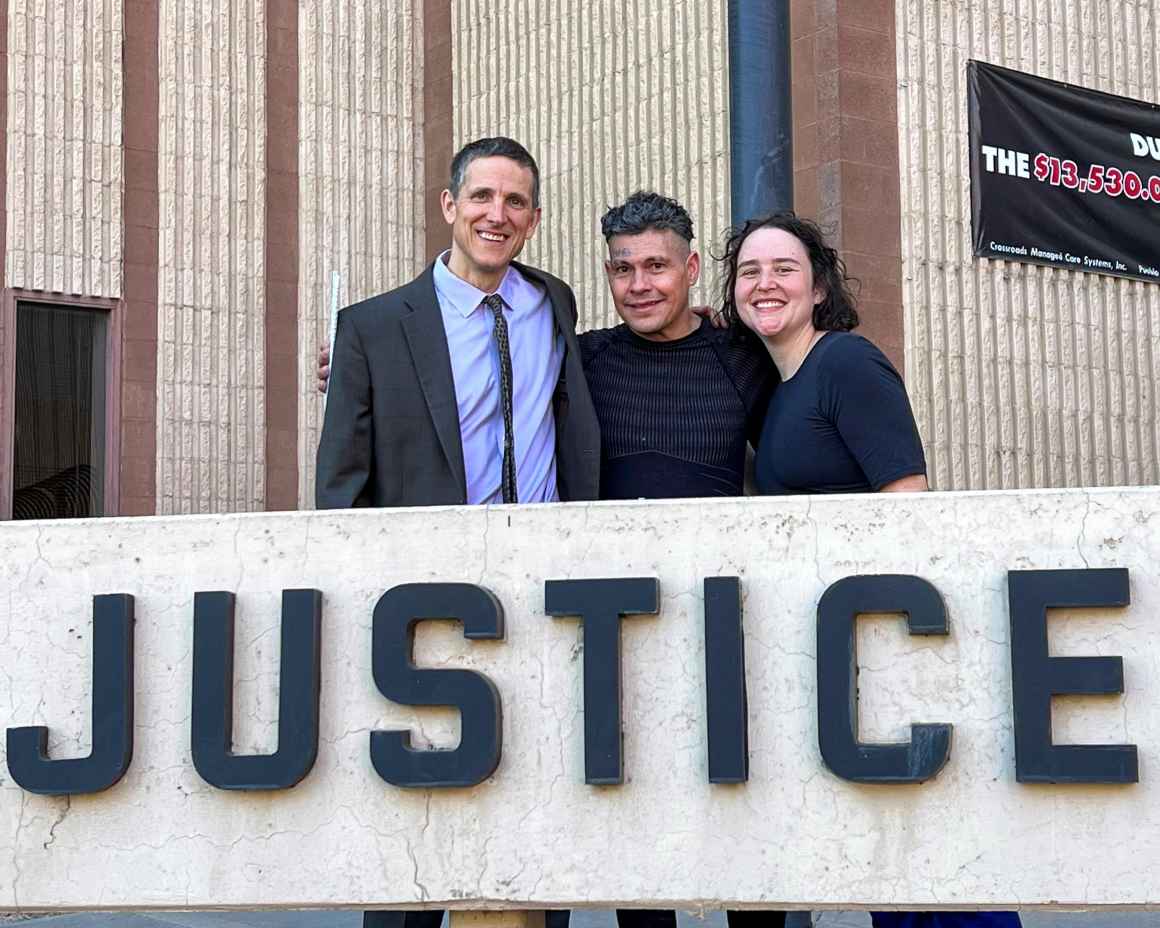A new letter cautions Colorado sheriffs and pretrial detention centers against violating state laws prohibiting specific kinds of collaboration with ICE.
DENVER — Today, ACLU of Colorado sent a letter to all Colorado sheriffs and pretrial juvenile detention centers urging them to not participate in President-elect Trump’s draconian anti-immigrant agenda, including mass detention and deportation. The letter demands they “make clear that [their] resources will not be used to further federal raids, detention, or other measures that threaten to tear families apart and destabilize our communities.”
The letter reiterates that Colorado law restricts state and local law enforcement’s involvement in the enforcement of federal civil immigration law, recognizing that such entanglement threatens community trust and safety. Colorado state law specifically forbids state and local law enforcement officers from arresting or detaining individuals for civil immigration purposes, including at the request of Immigration and Customs Enforcement (ICE). State law additionally prohibits depriving a person of their liberty on the basis of a suspected civil immigration violation in the absence of a warrant signed by a judge.
The letter also warns that aiding in federal authorities’ immigration detention tactics would betray community trust and expose local law enforcement to personal liability under Colorado law.
The following statement can be attributed to Tim Macdonald, ACLU of Colorado Legal Director:
“President-elect Donald Trump has made his anti-immigrant agenda abundantly clear. He has promised to carry out the largest mass detention and deportation program in our nation’s history, including launching what he calls ‘Operation Aurora’ to deport immigrants en masse, including from places in Colorado. What local law enforcement must make clear, in response, is that they will not participate in these efforts because Colorado law forbids it. They also must make clear that they will comply with state law and the Colorado Constitution in declining to participate in federal civil immigration enforcement. We have taken legal action against law enforcement offices that ran afoul of Colorado law, and if necessary, will do so again.
“These concerns are not theoretical. Recent actions by the Aurora Police Department (APD), in conjunction with ICE, highlight the urgency of addressing these concerns. What we saw and heard, alongside other immigration and housing advocates, was gravely concerning.
“In the middle of the night on Monday, December 16, 2024, and continuing through Tuesday, December 17, 2024, APD, in conjunction with ICE, executed a terrifying raid on two apartment buildings in Aurora that house many multigenerational families, including children and elderly relatives. Residents were removed from their homes at gunpoint and handcuffed, kept on the ground outside in freezing temperatures, and deprived of access to warm clothing and necessary medication.
“APD officers detained many individuals in APD vehicles, including children as young as 3 and 8 years old, without presenting arrest warrants or telling people why they were arrested. Rather than booking or charging them with any crimes, APD officers turned many of the residents over to ICE agents, where they were held in ICE vehicles and transported to ICE detention.
“APD has stated that they were responding to alleged crimes on the premises. Whether APD’s asserted law enforcement objectives were legitimate or pretextual, the officers executed the raid in a manner that appears to have exceeded their authority under Colorado law.
“This type of behavior inflicts harm and distress on a vulnerable community, and risks depriving residents of their rights guaranteed under the Colorado Constitution and state law. We are ready to respond to violations of our neighbors’ civil rights and to prevent constitutional violations of the rights of Colorado families and communities.”
Read the full letter below








